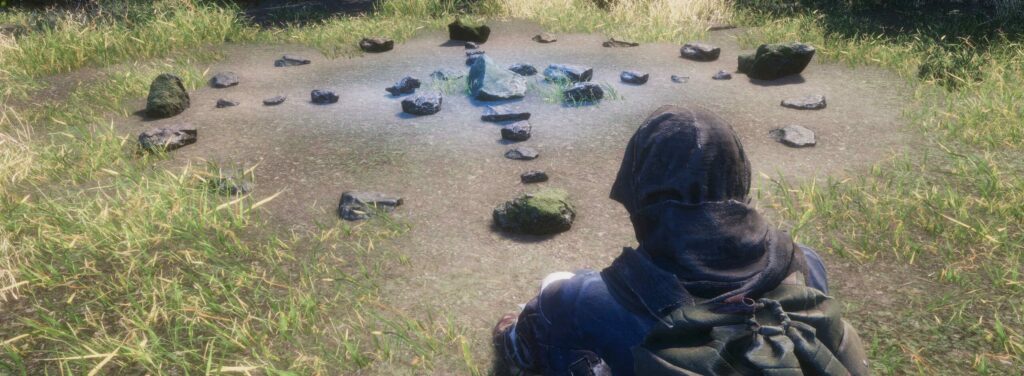
Celebrate Indigenous History Month by exploring 3 Academic Innovation Fund (AIF) projects highlighting Indigeneity and the impact they are having on our students, communities and world at large.
Biskaabiiyaang: The Indigenous Metaverse
Led by Anishinaabe professor Maya Chacaby (Glendon, Sociology), Biskaabiiyaang is a real time, fully immersive language and culture program delivered in a virtual setting. Learners interact with Indigenous land-based knowledge, technologies, philosophies, cultural teachings and Anishinaabemowin (Ojibwe Language).
Biskaabiiyaang is an Anishinaabe word that details the experience of having been on a long journey, then reaching the point of returning home. It is a word for cultural resurgence, resisting colonial violence, and reclaiming ways of being Anishinaabe through contemporary practices.
Last year, Biskaabiiyaang joined the international community for UNESCO’s International Decade of Indigenous Languages (IDIL) 2022-2032 to promote and protect endangered Indigenous languages. Discover more in YFile here.
A demo of Biskaabiiyaang can be downloaded on the website.
'Growing Wuleelham / Our “Good Tracks”: Strengthening experiential and online learning for Indigenous student success in the Faculty of Education
This project strengthens community-engaged and land-based learning for Indigenous students in the Faculty of Education. “Growing Wuleelham” is led by Dr. Rebecca Beaulne-Stuebing, in collaboration with other scholars connected to the Faculty of Education, including Dr. John Hupfield, Dr. Pamela Toulouse, Dr. Kiera Brant-Birioukov, and Marianne Groat. It is focused on learning from current Indigenous students and alumni about their experiences in these Indigenous cohorts and programs, in order to develop a plan for quality assurance and implementation of strategic institutional supports.
“The plan will provide direction for the Faculty of Education, to ensure institutional capacity to deliver programs beyond the standards of typical review processes,” Dr. Beaulne-Stuebing shared. “By foregrounding the perspectives of Indigenous students and alumni, we are strengthening our processes of program review and development, centering community-identified standards of what quality can - and should - mean in the context of Indigenous education.”
The Wuleelham programs in the Faculty of Education include Waaban Indigenous Teacher Education, as well as MEd and PhD cohorts in Urban Indigenous Education. In previous years, there has also been a combined credit course offered in partnership with the Toronto District School Board (TDSB). Through the “Growing Wuleelham” project, Indigenous students have been supported to learn from respected Indigenous educators and facilitators from the broader community, to participate in land-based learning opportunities, and to provide feedback on their experiences in the programs. These land, water, and Indigenous community connections are crucial to the collaborative, community-centered approach through which the Wuleelham initiatives were established.
Translated from the Lenape language, Wuleelham refers to "Making Good Tracks." The Wuleelham cohorts and programs provide pathways for Indigenous community members to pursue teacher training and graduate studies in education, while centering community priorities, relationships, and knowledges.

Building Mutually Beneficial EE Initiatives in Creative Technologies with Indigenous Partners at the New Markham Campus

An initiative from the School of the Arts, Media, Performance and Design (AMPD) led by professor Rebecca Caines, the Experiential Education (EE) project to be undertaken at the new Markham Campus will explore mutually beneficial educational initiatives with Indigenous partners in the field of Creative Technologies. Using Community-Based Research (CBR) to investigate best practices and sustainable models for Indigenous partnerships, the School will work with Indigenous communities in the York and Durham Regions around the new campus.
This learning will then be applied to an EE module for a new AMPD Creative Technologies class at Markham Campus. The new module will combine Community Service Learning (CSL), with land-based pedagogies, and art and technology activities (virtual and in-person) to connect York students and Faculty with the history and present of the Indigenous lands on which they learn as learning is led by Indigenous educators, community leaders, and artists.
Ensuring that Indigenous values and traditions are reflected in the design of York University's Markham Campus is a high priority, highlighting three key principles outlined in the Indigenous framework:
- Engage with Indigenous communities to enrich the learning process.
- Establish spaces for Indigenous cultures and community within the University.
- Ensure that the perceptions and experiences of Indigenous community members are reflected int he classroom, on campus and in university life.
